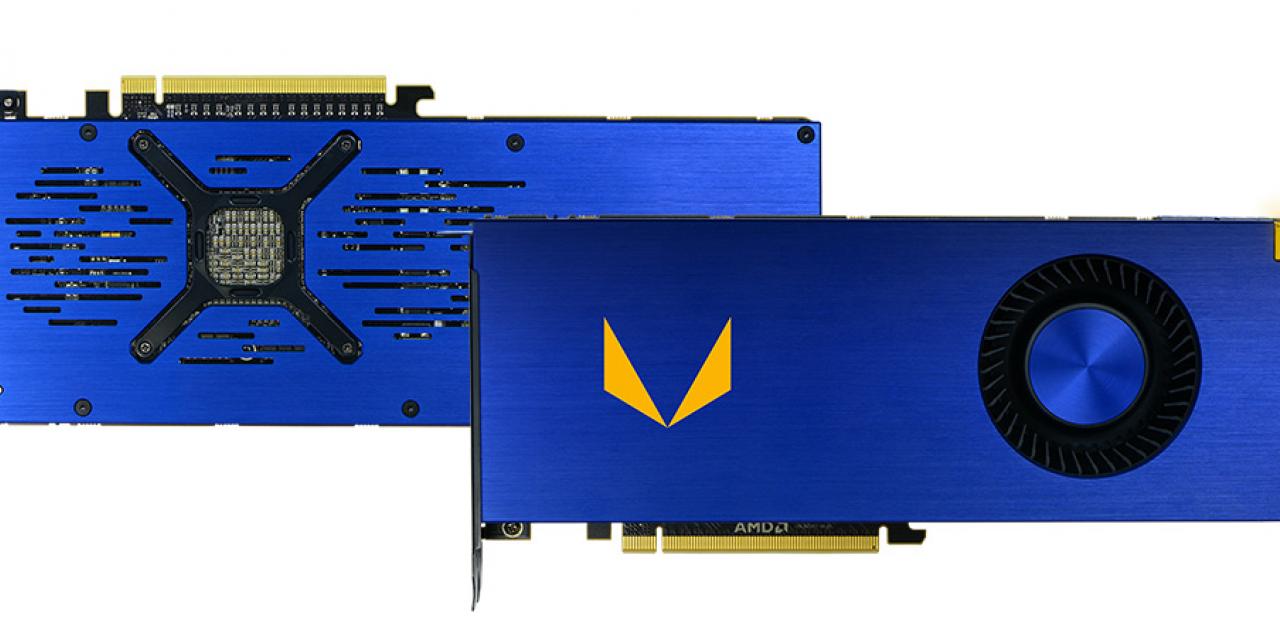
AMD has had a solid year in 2017, riding high on a wave of appreciation for its new Ryzen CPUs and hype for its upcoming ThreadRipper range set to take on Intel's top of the line offerings. It had a lot of goodwill towards its next graphics architecture, Vega, too. That is, it did, before recent benchmarks for its professional "Frontier Edition," card started appearing and the gaming results were far from stellar.
While many have argued that the card wasn't designed with gaming in mind and AMD itself has said that optimizations should make Vega RX cards, as they will be known, far more capable, it does feel a little like someone has let the air out of AMD's Vega balloon.
At its fullest too, there was a lot of air in there. The Vega hype train had gathered serious steam in the months leading up to the Frontier Edition's unveiling. We saw early benchmark leaks which suggested the range spanned the entire line up of the Nvidia competition, from the 1080 right up to possibly even beating out the Titan Xp, which would be a helluva feat considering it was the owner of the single-GPU performance crown.
When we learned the specifications of the monster Frontier Edition it seemed set to play out the rumors as true too, with 13 Tflops of computing power, 16GB of HBM2 memory and high-clock speeds. It was a big power draw at up to 375w for the water cooled version, but so what if the performance was there?
But we now know that it's not, or at least, not to the extent that fans hoped.
When the Frontier Edition debuted in early July, it quickly became clear that Vega was unlikely to reach the heady heights fans had hyped it to. Although AMD did stress repeatedly and in various ways that the Vega RX cards would be better at gaming, the Frontier Edition showed significant shortfalls. It performed well against Nvidia cards in a number of synthetic benchmarks, but it fell behind heavily in gaming settings and a number of more 3D-orientated tests.
Its overall performance was comparable to a GTX 1080, a card that retails for around half the price of the Frontier Edition. At $1,000, it's still a solid card for content creators, but it's left a lot of people concerned about the eventual abilities of the RX Vega GPUs.
So should we write Vega off as a failed experiment and another instance of AMD not being able to keep pace with Nvidia?
Not necessarily.
For starters, we can expect higher clocks with the Vega RX cards. In a similar manner to moving from RX 400 series GPUs, to the RX 500s, AMD will have increased clock speeds by a small, but significant margin. Expecting a roughly 10 percent increase there wouldn't be out of this world, which in turn could help raise the cards performance above that of the GTX 1080. It wouldn't let it compare favourably to the GTX 1080 Ti, but it would be a start.
Secondly, driver optimizations made between the release of the Frontier Edition and tweaks from game developers should raise the bar in gaming by a couple more percent points, making Vega RX cards that little bit more competitive.
We would also expect big price drops and improved energy efficiency with the RX cards, which means the Vega cards wouldn't necessarily have to compete with the top Nvidia cards, even if AMD fans would no doubt like it if they did.
It's very speculative, but it's also worth highlighting that the Frontier Edition was designed to be a workstation card that could also game if needed, not a gaming card with workstation capabilities. That may be hyperbole, but it could also mean that a reconfiguration of the cards' hardware could see them improve drastically for gaming in some titles.
Most likely though, this is all wishful thinking. Although we would expect the Vega RX cards to be better for gaming than the Frontier Edition, to have lower power requirements and a reduced price tag, it's unlikely to steal the performance crown from Nvidia as many fans hoped for.
In reality, it will probably be competitive on price at the near-top-end, but its energy efficiency will turn many off.
Here's hoping Vega can still offer a credible alternative to Nvidia's already expensive GPUs, but we won't be holding our breath.
